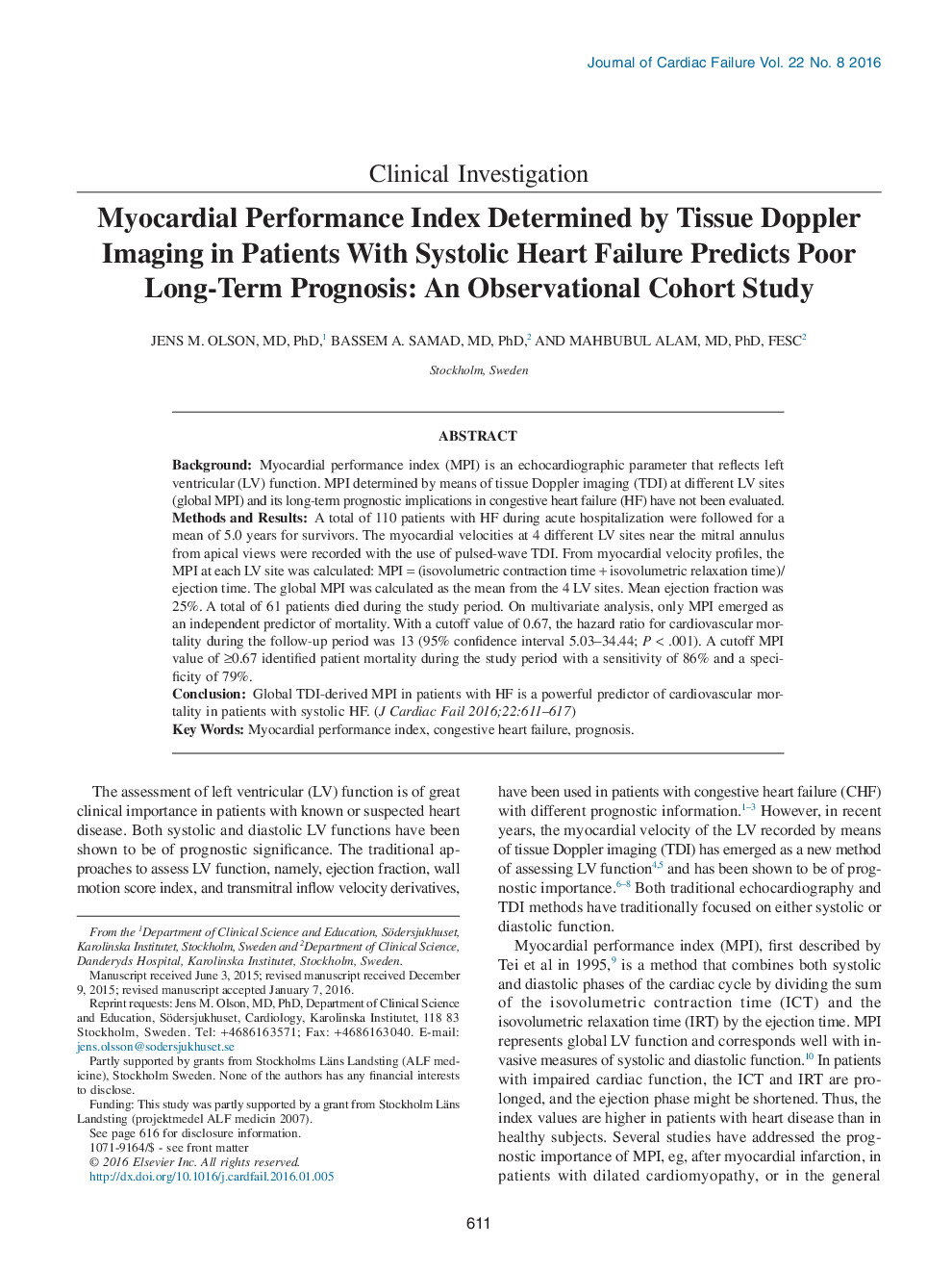| Article ID | Journal | Published Year | Pages | File Type |
|---|---|---|---|---|
| 5983655 | Journal of Cardiac Failure | 2016 | 7 Pages |
â¢Patients with acute heart failure and LVEFââ¤â40% were included.â¢Echocardiography was performed, and the patients were followed for a mean of 5 years.â¢Myocardial performance index (MPI) had the strongest association with mortality.â¢MPIââ¥â0.67 meant a 13-fold higher risk of cardiovascular mortality than MPIâ<â0.67.â¢MPI might in the future be included in prognostic score models in heart failure.
BackgroundMyocardial performance index (MPI) is an echocardiographic parameter that reflects left ventricular (LV) function. MPI determined by means of tissue Doppler imaging (TDI) at different LV sites (global MPI) and its long-term prognostic implications in congestive heart failure (HF) have not been evaluated.Methods and ResultsA total of 110 patients with HF during acute hospitalization were followed for a mean of 5.0 years for survivors. The myocardial velocities at 4 different LV sites near the mitral annulus from apical views were recorded with the use of pulsed-wave TDI. From myocardial velocity profiles, the MPI at each LV site was calculated: MPI = (isovolumetric contraction timeâ+âisovolumetric relaxation time)/ejection time. The global MPI was calculated as the mean from the 4 LV sites. Mean ejection fraction was 25%. A total of 61 patients died during the study period. On multivariate analysis, only MPI emerged as an independent predictor of mortality. With a cutoff value of 0.67, the hazard ratio for cardiovascular mortality during the follow-up period was 13 (95% confidence interval 5.03-34.44; P < .001). A cutoff MPI value of â¥0.67 identified patient mortality during the study period with a sensitivity of 86% and a specificity of 79%.ConclusionGlobal TDI-derived MPI in patients with HF is a powerful predictor of cardiovascular mortality in patients with systolic HF.
